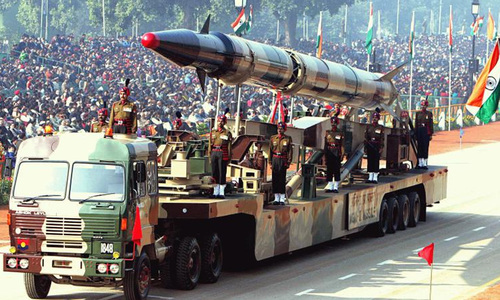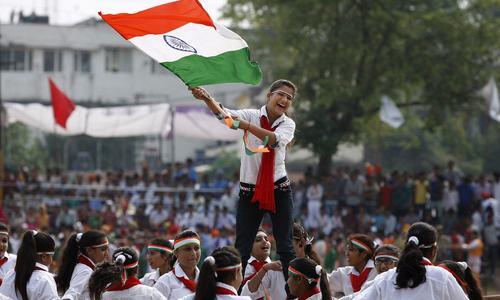ISLAMABAD: Despite its profound interest in export control regimes, Pakistan has so far not expressed interest in joining the West-dominated Missile Technology Control Regime (MTCR) — an elite club of countries controlling exports in missile and unmanned aerial vehicle (UAV) technology.
The country has a fairly advanced missile programme and developed a number of short- and medium-range ballistic missiles and UAVs, but it has never sought membership of the MTCR, which theoretically could have facilitated its access to high-end missile technologies.

India, meanwhile, this week became the 35th member of the MTCR after a consensus emerged in the regime on admitting it into its fold for what was described by the group’s chair Ambassador Piet de Klerk as a move towards strengthening “the international efforts to prevent proliferation of delivery systems (ballistic missiles or unmanned aircraft) capable of delivering weapons of mass destruction”.
Read: India's NSG bid fails over NPT condition
There are several explanations about Pakistan’s approach on the MTCR.
Foreign Office spokesman Nafees Zakaria said that various stakeholders within the country had so far not reached a decision on joining the group.
“We do not feel that it is propitious time for applying,” he said, adding that Pakistan was already voluntarily following the MTCR guidelines.
According to the MTCR, membership requests are assessed on the basis of multiple considerations, including the contribution a prospective new member will make to strengthen international non-proliferation efforts; that it demonstrates a sustained and sustainable commitment to non-proliferation; has a legally based effective export control system that puts into effect the MTCR guidelines and procedures; and administers and enforces such controls effectively.
Unlike the Nuclear Suppliers Group, for which Pakistan has applied despite the NPT shortcoming, it meets the entire MTCR criteria. But with the group deciding the membership cases through consensus, several other unsaid factors, particularly geopolitical and strategic concerns, come into play.
The FO spokesman contended that it was inappropriate to look at the matter from the perspective of India gaining entry into the group. “We follow our own interest in terms of what suits us and what should be done at what time,” he added.
Another official, who did not want to be named because he was not authorised to speak to media, denied the impression that Pakistan lacked interest in joining the MTCR. He said it was instead a case of odds being against Pakistani case.
But there is an influential school of thought which is opposed to Pakistan showing interest in joining the MTCR.
Former permanent representative at the UN in Geneva Zamir Akram said: “There is no value addition for us to join the MTCR.” He was of the opinion that Pakistan should keep its options open in terms of ensuring security and deterrence and avoid committing to MTCR obligations.
Sarwar Naqvi, executive director of the Centre for International Strategic Studies, explained that Pakistan did not feel the need for entering the MTCR because it had indigenous missile capability that was adequate for its own security and deterrence.
The MTCR is a voluntary regime without any legally binding commitments and penalties for violators. It urges its members to restrict their exports of missiles and related technologies capable of carrying a 500kg payload for at least 300km or delivering any type of weapon of mass destruction.
The MTCR does not maintain a difference between a member and a non-member, except for the United States which has legally prescribed distinction for MTCR members through which transfer of technology or missiles to a non-MTCR country is restricted.
It is not just experts in Pakistan, who have begun questioning the utility of joining the regime, China, whose application has failed to get consensus since 2004, is also having a second thought.
“We have noted that some of the multilateral export control regimes have changed in one way or another. With that in mind, China is assessing the effectiveness of the MTCR in safeguarding the international non-proliferation regime,” Chinese foreign ministry spokesman Hong Lei said in a media briefing in Beijing.
It was earlier being speculated by some Indian analysts that the MTCR membership would be used by India for bargaining with China on its NSG candidature, which the latter had been opposing for not meeting the NPT criteria.
Even in the MTCR, India continues to enjoy exceptionalism, although under a US policy on new members, those not recognised as nuclear weapons states will have to give up their ballistic missiles that exceed the limit of 500kg payload for 300km.
South Korea and Ukraine were earlier given similar exceptions, according to an arms control website.
Published in Dawn, June 30th, 2016













































